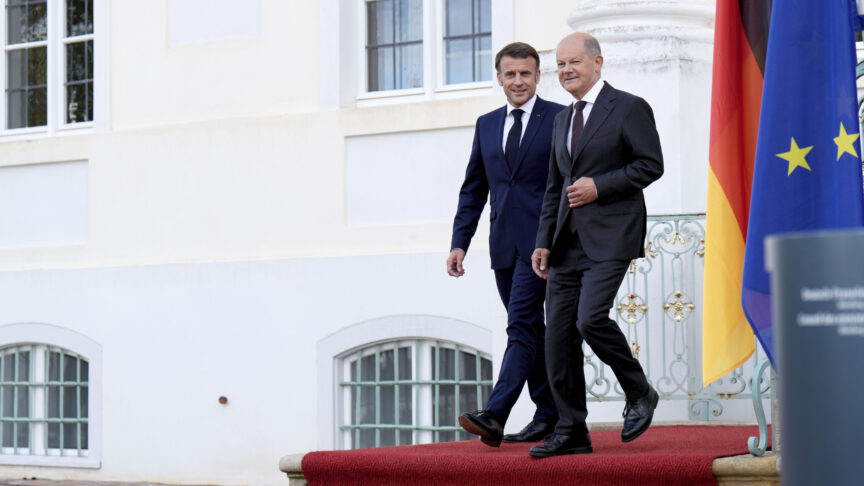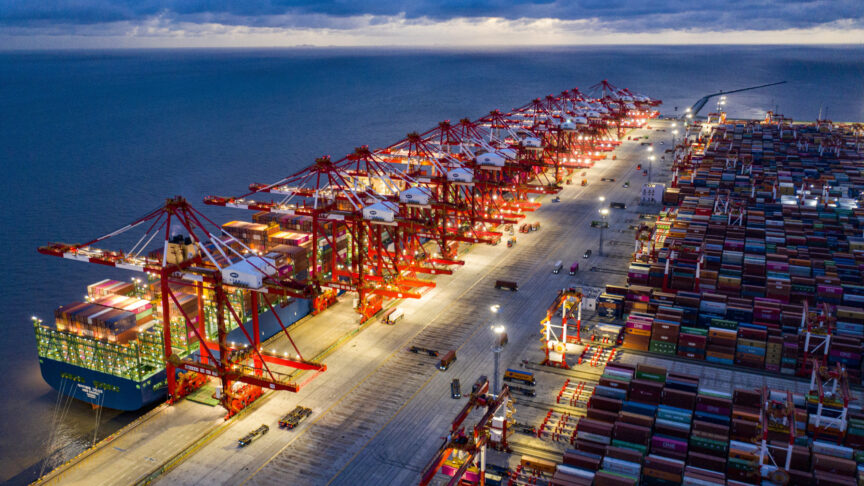Euro crisis entering dangerous third phase
First we had a banking crisis; then we added a sovereign debt crisis; now we also have a political crisis, and one that strikes to the heart of what the European Union was designed to achieve.
From outside, Europe looks the same as ever – more riots on the streets of sunny Southern European countries and a niggling sense that the Old Continent is still failing to face up to an existential crisis. From inside, the situation is certainly more complicated – and potentially far scarier. Not only is the crisis still very much alive, but it seems to have moved into a third and very worrying phase.
First we had a banking crisis; then we added a sovereign debt crisis; now we also have a political crisis, and one that strikes to the heart of what the European Union was designed to achieve.
Think back a few years to a time when Greeks and Spaniards (not to mention the Portuguese and many, many others) did not routinely head to the streets or go out on strike to protest against the personal disasters that many of them now face. Back then, the European Union brought the promise of a new model of international association that swapped the primacy of the nation state, via the surrender of a fair chunk of sovereignty, for a new way of doing things. At its core were the largest single market in the world and a belief in liberal democracy that united the people of (eventually) 27 member states, with others drawn in by the EU’s powerful magnetic field. The euro was another plank in the long road towards integration, and the Schengen zone of passport-free travel was another proud boast. Then the crisis hit, and the “project” has been creaking ever since.
At this very moment the new political phase of crisis is centered on Spain, where unemployment is running at 25 percent and the government of Mariano Rajoy has just unveiled a new austerity budget that is guaranteed to bring more angry and desperate people out on the streets. Rajoy is playing a political game, needing but so far unwilling to ask for the money on offer from the European Central Bank, which would give the impression that outsiders (the EU and IMF) are imposing further austerity on Spain. The trouble is, as David Gardner writes in the Financial Times, “austerity is politically toxic and intrinsically centrifugal.”
The most worrying manifestation of this is in heavily indebted Catalonia, the government of which has called a snap election that is widely seen as a referendum on independence from Madrid (although not one that is likely to succeed). Catalonia accounts for 30 percent of Spanish exports yet has only 15 percent of its population, and many Catalans feel they hand over a disproportionate amount of their cash to Madrid. There are arguments, of course, on the other side, but the situation in Catalonia is emblematic of the political divisions that the crisis is throwing up all across Europe, and that are only going to be exacerbated by the continuing woes of the euro.
The political fault line between the Germans (whose media happily draws a picture of Southern Europeans as feckless wasters) and the troubled economies of the South (where memories of the Nazis have been dredged up) is well known. In Britain, domestic austerity, a faltering coalition government and the unedifying view of the Eurozone’s struggles have all contributed to a resurgence of popular euroscepticism. From Finland to the Netherlands, political capital has been made by those who decry the implications of the EU project and the crisis that the euro has found itself in.
What makes this a new political phase in the crisis is not just this rise in regional and inter-national antipathy, or the continued protests on the streets of Madrid and Athens. Back in the summer, Mario Draghi, the president of the European Central Bank, promised to do “whatever it takes” to save the euro. This backstop position brought temporary relief in the bond markets, but as Rajoy is demonstrating in Spain, it is not the sudden cure that many hoped it would be. It does, however, represent the first concrete step towards further integration as the cure for the ills of the euro. Whether it is premature or not, the focus of the debate is changing from how the fire can be extinguished to how the burning house needs to be redesigned (my colleague Ulrike Guérot argues that even in Berlin the big question is not about booting the naughty Greeks out, but how “political union” is to be achieved). Banking union and the mutualization of debt are already firmly on the table. But this brings a whole new set of problems that might be even more dangerous for the grand EU project.
For a start this makes the prospect of a “multispeed Europe” even more likely, casting those that cannot keep up into an outer orbit along with those (like the UK) that will not. It makes the euro more sustainable in the short run, of course, but without either real reform and convergence or continued massive transfers between states based on a genuine shared identity, how long will this last? Massachusetts to Arkansas is not the same as Germany to Portugal. Will Greece, after all its current pain, really be a euro member ten years from now? The perennial question of the “democratic deficit” at the heart of Europe, already thrown into sharp relief by technocratic governments in Greece and Italy, will only become sharper with further pooling of sovereignty.
All of this may also have the effect of exacerbating ill feeling between nations, and fueling regional aspirations of breaking free of the orbit of current nation states. Whether it was exhaustion, wishful thinking or just another summer holiday season in Europe, recent events have led to whispers that the worst of the crisis is over and the sunlit uplands of further EU integration are now visible. But such whispers are naïve. The first two phases remain unresolved, and the third phase of the crisis is upon us, bringing even more challenges to the whole EU project.
The European Council on Foreign Relations does not take collective positions. ECFR publications only represent the views of their individual authors.


